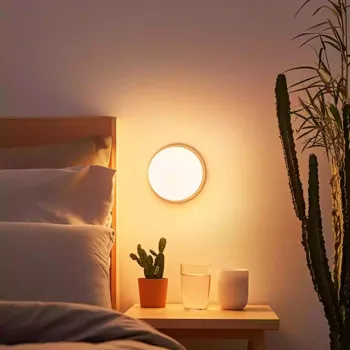Discover the Science of Sleep: 8 Facts to Transform Your Nighttime Routine. Dive into the secrets for blissful slumber!
Namaste readers! Are you one of those folks who toss and turn all night, dreaming
more of sheep than actually sleeping? You're not alone! In today's fast-paced world, a good night's sleep feels like a distant luxury.

But what if I told you that understanding the science behind sleep can unlock the secret to blissful slumber? Forget counting sheep; let's dive into eight fascinating facts that will revamp your nighttime routine and leave you feeling refreshed and ready to conquer the day.
Respect your circadian rhythm for better health
First off, the body has an internal clock. This is your circadian rhythm, a roughly 24-hour cycle that regulates sleep-wake patterns, hormone release, and even body temperature. It’s like having a little conductor inside you, orchestrating your bodily functions. You need to respect it.
Disrupting this rhythm by staying up late or constantly changing sleep schedules throws the whole orchestra out of tune. Try to stick to a consistent sleep-wake time, even on weekends, to keep your internal clock ticking smoothly which will help.
Light plays a crucial role in regulating sleep patterns
Secondly, did you know that light is a major player in regulating sleep? Exposure to bright light, especially blue light from screens like phones and laptops, suppresses the production of melatonin, the hormone that makes you feel sleepy.

So, ditch the late-night scrolling and switch to warmer, dimmer lights as evening approaches. Consider using blue light filters on your devices or investing in a good old-fashioned book before bed. Give your eyes a break from the screen glare too.
Bedroom environment crucial for quality sleep: dark, quiet, cool
Thirdly, your bedroom environment matters more than you'd think! Think of your bedroom as your sleep sanctuary. It should be dark, quiet, and cool. Darkness signals to your brain that it's time to produce melatonin.

Noise can disrupt your sleep cycles, preventing you from reaching deep, restorative sleep. A cooler temperature helps your body relax and drift off more easily. Invest in blackout curtains, earplugs, and a comfortable mattress and pillows to create the perfect sleep haven.
Diet before bed affects sleep quality; avoid caffeine and alcohol
Fourthly, what you eat and drink before bed can significantly impact your sleep quality. Avoid caffeine and alcohol close to bedtime, as they can interfere with your sleep cycle.

Caffeine is a stimulant that keeps you awake, while alcohol can initially make you feel drowsy but disrupts sleep later in the night.
Instead, opt for a light, healthy snack if you're feeling hungry, such as a handful of nuts or a small bowl of yogurt which should help make a differences to your internal clock.
Stress disrupts sleep, use relaxation techniques
Fifthly, stress is a major sleep thief. When you're stressed, your body releases cortisol, a hormone that keeps you alert and awake. This can make it difficult to fall asleep and stay asleep.
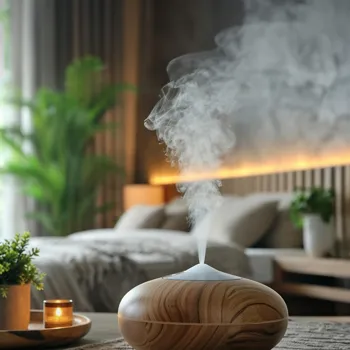
Practicing relaxation techniques, such as yoga, meditation, or deep breathing exercises, can help calm your mind and body before bed. Even a few minutes of mindful meditation can make a world of difference and improve your sleep quality.
Exercise improves sleep, timing is crucial. Avoid intense workouts close to bedtime
Sixthly, exercise is a great way to improve sleep, but timing is key. Regular physical activity can help regulate your sleep-wake cycle and reduce stress. However, avoid intense workouts close to bedtime, as they can have the opposite effect and keep you awake.

Aim to finish your exercise at least a few hours before you hit the pillow. A calming evening walk can also do wonders for your peace of mind.
Napping can boost alertness but may disrupt nighttime sleep
Seventhly, napping can be a double-edged sword. While a short afternoon nap can boost alertness and improve performance, long or frequent naps can disrupt your nighttime sleep. If you choose to nap, keep it short (around 20-30 minutes) and avoid napping too late in the day.

Experiment to see what works best for you or avoid any excessive sleep activities.
Listen to your body's cues for optimal sleep
Eighthly, listen to your body's cues. Pay attention to your natural sleep patterns and try to align your sleep schedule with them. If you're a natural night owl, trying to force yourself to go to bed early may be counterproductive.
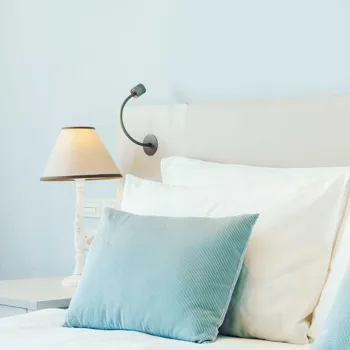
Find a sleep schedule that feels comfortable and sustainable for you. Everyone's sleep needs are different, so experiment and find what works best for you.
Sleep stages crucial for health; 2 main types: NREM and REM
Sleep isn't just a period of inactivity; it's a complex process that involves different stages, each with its unique functions. These stages cycle throughout the night, and disruptions to these cycles can lead to poor sleep quality.

There are two main types of sleep: Non-Rapid Eye Movement (NREM) sleep and Rapid Eye Movement (REM) sleep. NREM sleep has three stages: N1 (light sleep), N2 (slightly deeper sleep), and N3 (deep sleep). Each stage plays a crucial role in your overall health and well-being.
Sleep stages: N1-light, N2-temperature drops, N3-restorative deep sleep
N1, the lightest stage, is the transition between wakefulness and sleep which lasts for a short period. Your heart rate and breathing slow down, and your muscles begin to relax. It's easy to be awakened during this stage and may even involve sudden muscle jerks.
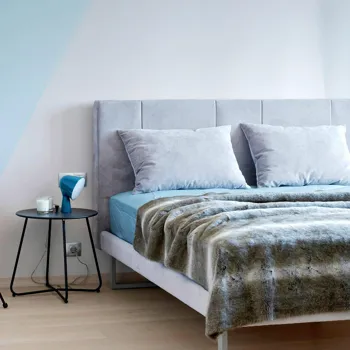
Then comes N2, your body temperature drops further, and your heart rate and breathing become slower and more regular. Brainwave activity slows down, with occasional bursts of electrical activity called sleep spindles. You spend more time in N2 than any other sleep stage.
N3, deep sleep, is the most restorative stage of sleep. Your heart rate and breathing are at their slowest, and your muscles are completely relaxed. It's difficult to be awakened during this stage, and if you are, you may feel groggy and disoriented.
Deep sleep is essential for physical recovery, muscle growth, and immune system function.
REM sleep vital for cognitive functions and vivid dreams
REM sleep is characterized by rapid eye movements, increased brain activity, and muscle paralysis. Your breathing becomes faster and irregular, and your heart rate increases. REM sleep is thought to be crucial for cognitive functions, such as learning, memory consolidation, and emotional processing.
It's also the stage when you experience vivid dreams. Without an adequate amount of quality sleep, processes cannot work to their fullest capacity.
Proper sleep crucial for physical and mental health
Each stage plays a very important role and disruption to these stages can significantly impact your physical and mental health. Lack of sleep is linked to a variety of health problems, including increased risk of heart disease, stroke, diabetes, obesity, and depression.
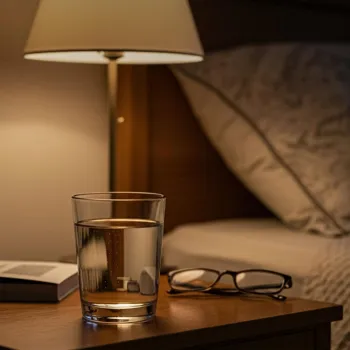
Aim for 7-9 hours of quality sleep each night to allow your body and mind to function at their best. Focus on improving your sleep hygiene, creating a relaxing bedtime routine, and seeking professional help if you're struggling with chronic sleep problems.
Consistent bedtime routine helps signal brain for sleep
Consistency is important when it comes to sleep. Just as a baby thrives on a regular bedtime routine, so does an adult. A well-established bedtime routine signals to your brain that it's time to wind down and prepare for sleep.

Think of it as a nightly ritual that helps you transition from the hustle and bustle of the day to a state of peaceful slumber. A good way to start is to stick to a consistent bedtime and wake-up time, even on weekends.
This helps regulate your circadian rhythm and makes it easier to fall asleep and wake up at the same time each day. Set an alarm for bedtime, just as you would for wake-up time, to remind yourself to start winding down.
Incorporate calming pre-sleep activities for better rest
A relaxing pre-sleep activity is essential. Incorporate calming activities into your routine that help you de-stress and relax. Activities to include are taking a warm bath or shower, reading a book (a physical book, not an e-reader!

), listening to soothing music, practicing gentle yoga or stretching, or journaling. Avoid screen time (phones, laptops, TVs) at least an hour before bed, as the blue light emitted from screens can interfere with sleep. Creating a comfortable environment also helps.
Make sure your bedroom is dark, quiet, and cool. Use blackout curtains, earplugs, or a white noise machine to block out distractions. Invest in a comfortable mattress, pillows, and bedding that promote restful sleep.
Limit caffeine and alcohol, have light snack, practice mindfulness for better sleep
Furthermore, limit caffeine and alcohol before bed. Both substances can disrupt your sleep cycle. Avoid caffeine for at least 6 hours before bedtime, and limit alcohol consumption in the evening.

Eating a light, healthy snack before bed can help prevent hunger pangs from waking you up in the middle of the night. Consider having a small bowl of yogurt with berries, a handful of nuts, or a piece of whole-wheat toast with almond butter.
Practising mindfulness or meditation, clear your mind and relax your body before bed. Focusing on your breath and letting go of racing thoughts can promote relaxation which is good for achieving good sleep quality.
Establish sleep associations for better rest, seek medical advice if needed
Over time your body will start to associate these activities with sleep, making it easier to fall asleep and stay asleep throughout the night. Be patient and consistent with your routine, and you'll reap the rewards of better sleep in no time.
However, if you're still struggling with chronic insomnia or other sleep problems, it's important to consult a doctor.
Sunlight crucial for circadian rhythm, affects sleep-wake cycle
Our circadian rhythm, that internal body clock we talked about earlier, is highly sensitive to light and darkness. These external cues play a crucial role in regulating our sleep-wake cycle. Sunlight is the most powerful regulator of the circadian rhythm.
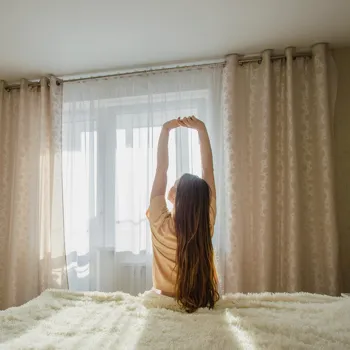
Exposure to bright sunlight in the morning helps to suppress melatonin production and promote alertness. This helps to synchronize your internal clock with the natural day-night cycle. Try to get at least 30 minutes of sunlight exposure each morning.
Take a walk outdoors, have your breakfast by a sunny window, or simply sit outside and enjoy the morning light.
Create a dark bedroom for better sleep with these tips
On the other hand, darkness signals to your brain that it's time to produce melatonin and prepare for sleep. Creating a dark bedroom environment is essential for optimal sleep. Use blackout curtains or blinds to block out light from streetlights or other sources.
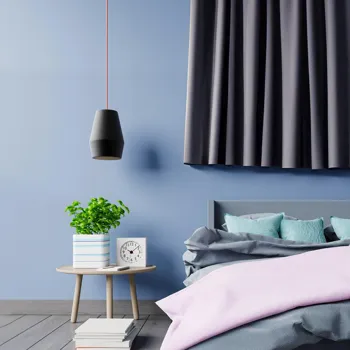
Avoid using electronic devices in bed, as the blue light emitted from screens can suppress melatonin production. If you must use electronic devices at night, use blue light filters or wear blue light-blocking glasses.
Dim the lights in your home in the evening to signal to your brain that it's time to wind down. Use dimmer switches or lamps with warm-toned bulbs to create a relaxing atmosphere.
Melatonin supplements aid circadian rhythm, consult doctor due to interactions, balance light exposure
Melatonin supplements can be helpful for regulating your circadian rhythm, especially if you're traveling across time zones or working night shifts. However, it's important to talk to your doctor before taking melatonin supplements, as they can interact with certain medications.
They should use it with caution. Remember, a healthy balance of sunlight during the day and darkness at night is essential for a well-regulated circadian rhythm and optimal sleep.
Make simple adjustments to your daily routine to optimize your exposure to light and darkness, and you'll be well on your way to better sleep.
Snoring and sleep apnea affect sleep quality and health
Snoring and sleep apnea are common sleep disorders that can significantly impact your sleep quality and overall health. While occasional snoring may be harmless, chronic snoring and sleep apnea can be signs of underlying health problems that require medical attention.

Snoring is a common problem that occurs when the tissues in your throat relax and vibrate during sleep. While snoring can be annoying for your bed partner, it's not always a sign of a serious health problem. However, loud, frequent snoring can be a symptom of sleep apnea.
Sleep apnea disrupts breathing during sleep, affecting quality
Sleep apnea is a serious sleep disorder that causes you to repeatedly stop breathing during sleep. These pauses in breathing can last for several seconds or even minutes, and they can occur dozens or even hundreds of times per night.
Obstructive sleep apnea (OSA) is the most common type which occurs when the muscles in the back of your throat relax and block your airway. Central sleep apnea (CSA) is less common and occurs when your brain doesn't send the proper signals to the muscles that control breathing.
Sleep apnea symptoms & risks; importance of diagnosis & treatment
Symptoms of sleep apnea include loud snoring, gasping or choking sounds during sleep, daytime sleepiness, difficulty concentrating, morning headaches, and high blood pressure. If you experience these symptoms, it's important to see a doctor for diagnosis and treatment.
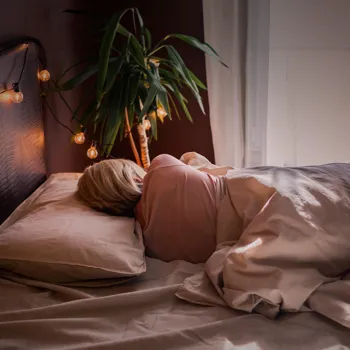
Sleep apnea can lead to serious health problems, including heart disease, stroke, diabetes, and high blood pressure. Diagnosis typically involves a sleep study, where doctors monitor your heart rate, breathing, brainwave activity, and oxygen levels while you sleep.
Treatment options for sleep apnea: lifestyle changes, CPAP therapy, surgery
Several treatment options are available for sleep apnea, including lifestyle changes, such as losing weight, avoiding alcohol and tobacco, and sleeping on your side. Continuous positive airway pressure (CPAP) therapy is the most common treatment for sleep apnea.
CPAP involves wearing a mask over your nose and mouth that delivers a constant stream of air to keep your airway open. Sometimes, surgery will also be needed to remove excess tissue.
Address snoring concerns early with doctor for better sleep
Talk to your doctor if you have concerns about chronic snoring or sleep apnea. It's better to address these issues early on to improve your sleep quality and protect your health.
Debunking common sleep myths for better rest
There are many misconceptions about sleep that can negatively impact our sleep habits. Let's debunk some of the most common sleep myths and set the record straight. Many people believe that needing less sleep means you are tougher, or shows strong grit.

This statement is false as it is important to get enough hours of sleep to function properly. Most adults need 7-9 hours of sleep per night to function optimally. Skimping on sleep can lead to daytime sleepiness, impaired cognitive function, and increased risk of health problems.
Believe it or not, catching up on sleep on the weekend can help make up for sleep deprivation during the week. While it's better to get consistent sleep, sleeping in on weekends can help you to recover from sleep debt.
However, it's important not to oversleep, as this can disrupt your circadian rhythm.
Alcohol disrupts sleep; exercise improves it
Many believe alcohol helps you sleep better. Alcohol might make you feel drowsy at first, but it disrupts your sleep cycle and can lead to fragmented sleep and frequent awakenings. It's best to avoid alcohol close to bedtime.
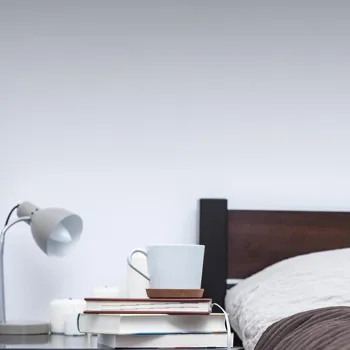
Exercising close to bedtime helps you sleep better as well because you are tired. While regular exercise is beneficial for sleep, avoid intense workouts close to bedtime. Exercise increases adrenaline and cortisol levels, which can keep you awake.
It's best to finish your exercise at least a few hours before bed. If you are having trouble sleeping you should stay in bed awake until you feel tired is a common suggestion among people. Tossing and turning in bed can increase anxiety and make it harder to fall asleep.
If you can't fall asleep after 20 minutes, get out of bed and do something relaxing until you feel sleepy.
Chronic snoring can indicate health issues; oversleeping harms
Snoring is always harmless. While occasional snoring may be harmless, chronic snoring can be a sign of underlying health problems, such as sleep apnea. Getting at least or even more sleep makes you feel less sleepy. While this may seem true, this common habit just makes you dizzier.

Oversleeping can disrupt your circadian rhythm and leave you feeling groggy and fatigued. Aim for a consistent sleep schedule, even on weekends.
Understanding sleep facts busts myths for better rest
Understanding the facts about sleep can help you make informed decisions about your sleep habits and improve your overall well-being. Don't fall for these sleep myths; instead, focus on creating a healthy sleep routine based on science-backed strategies. Sweet dreams and good night!
